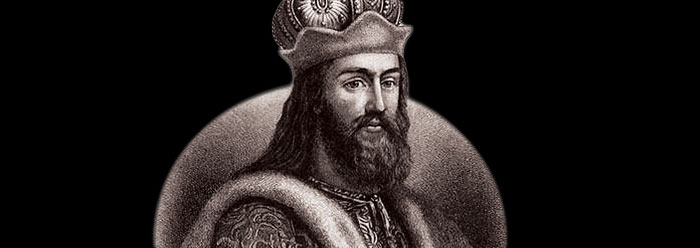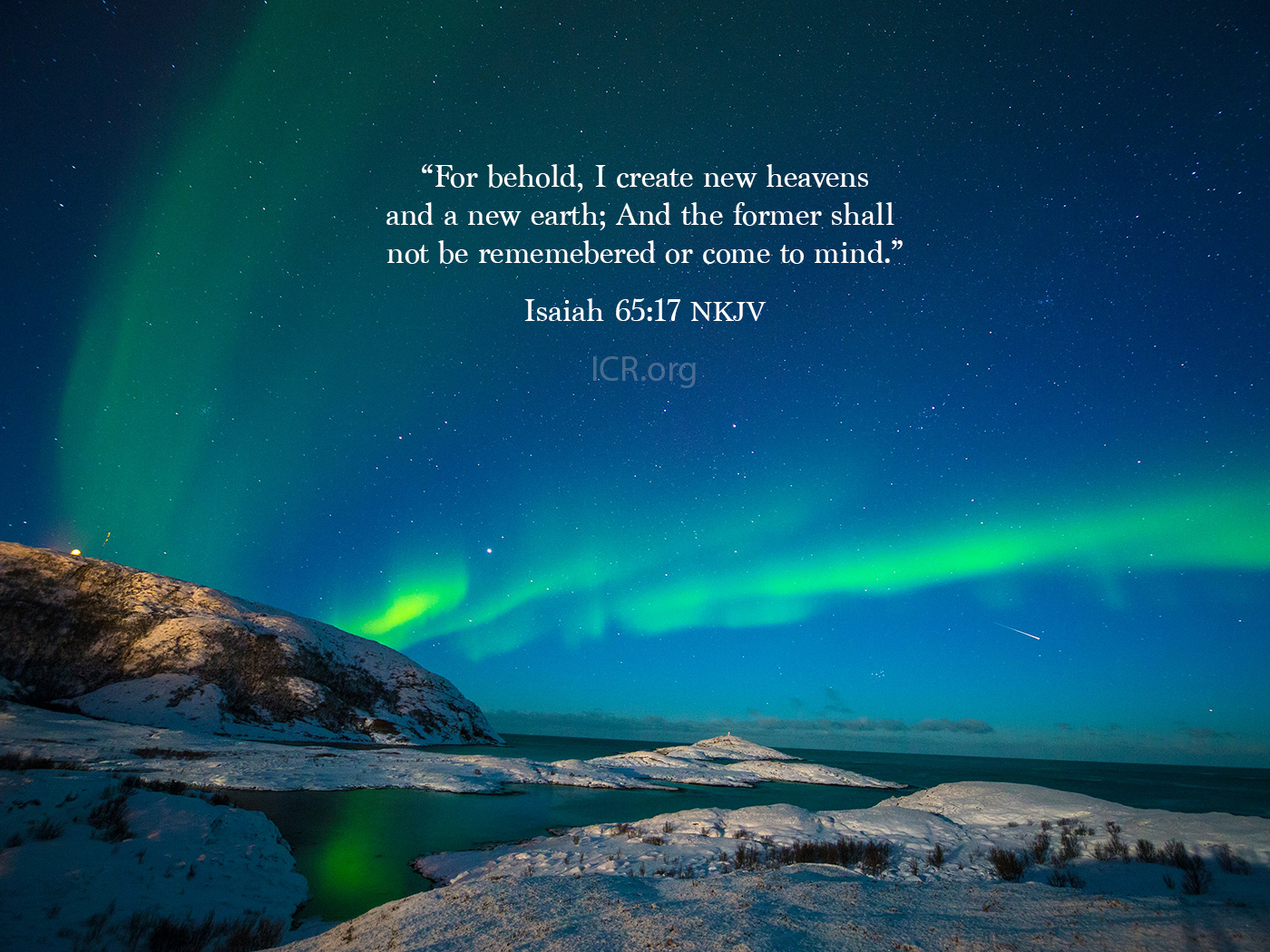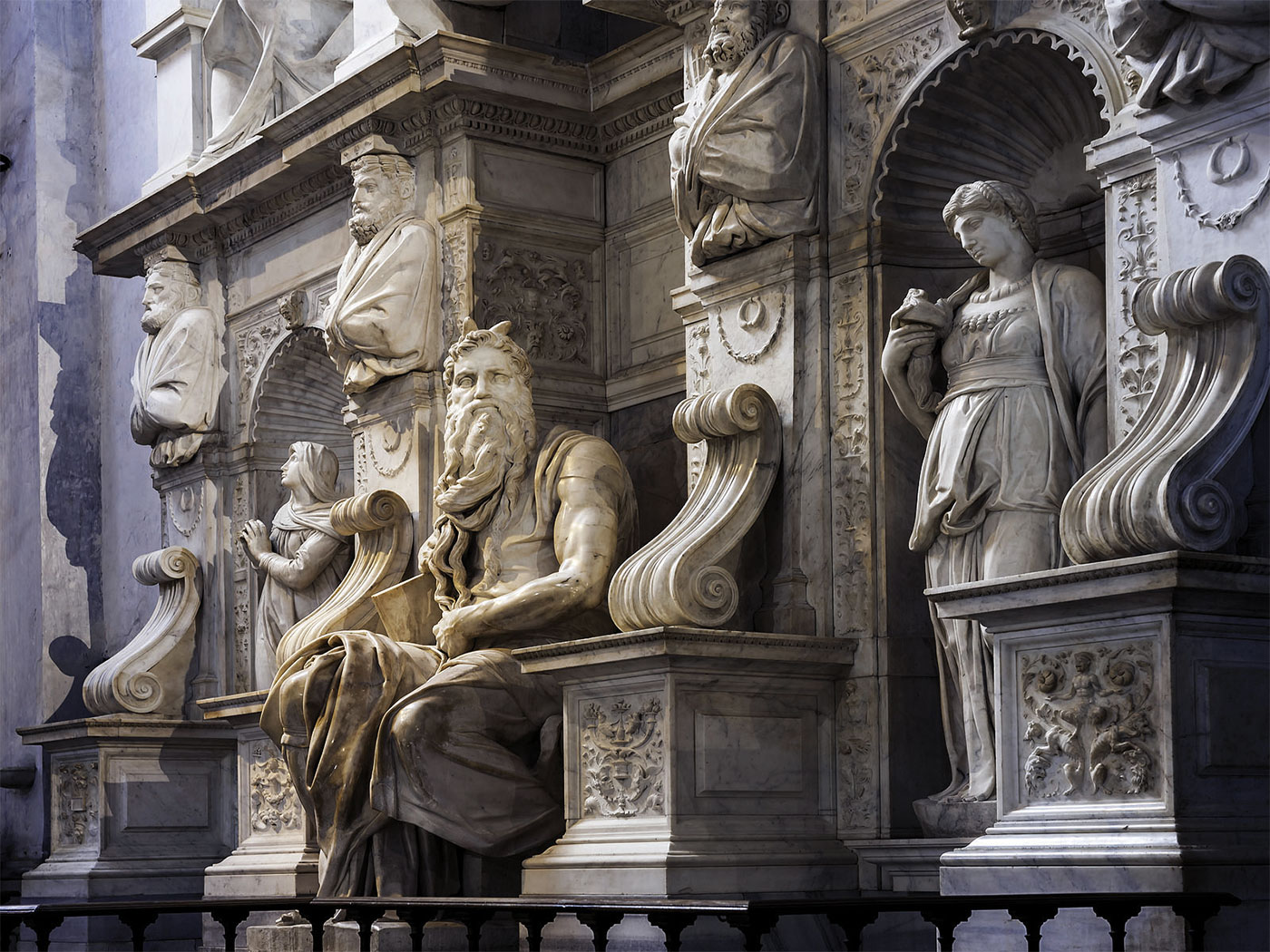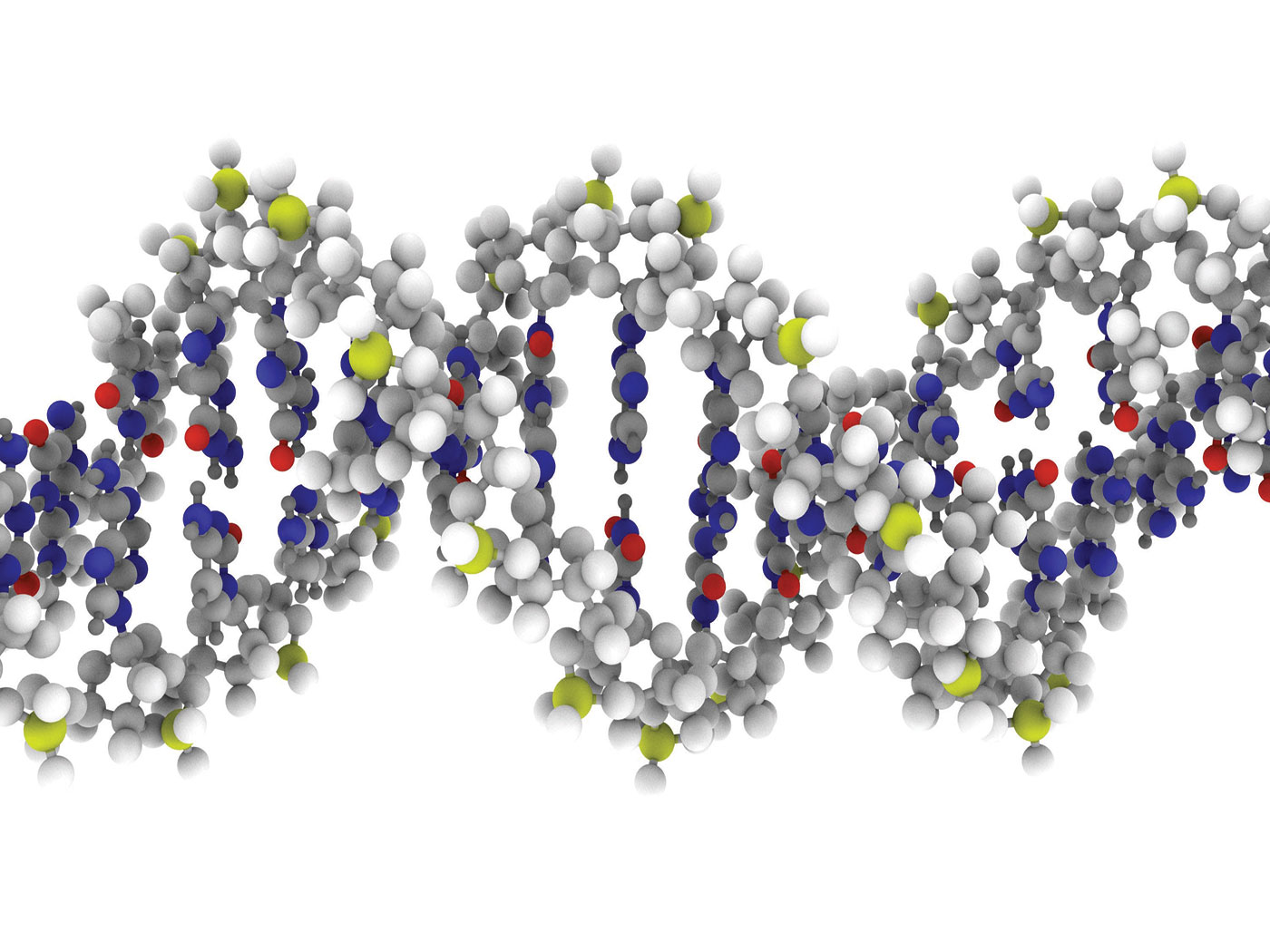But sanctify the Lord God in your hearts: and be ready always to give an answer to every man that asketh you a reason of the hope that is in you with meekness and fear. (1 Peter 3:15)
Biblical apologetics, at its most basic, is the reasonable presentation of God's truth as a witness that glorifies the Creator. Such a testimony can have surprising--and long-lasting--results. A crisis in 986 A.D. changed the social and political history of Russia forever. Who would have guessed that the Russian empire's young Viking king Vladimir would be so impressed with the history of Genesis that he permanently changed Russia's course from West to East?
A Pagan Ruler
Vladimir, Prince of Novgorod, was not expected to rule Russia, because his older half-brother Yaropolk succeeded their father, King Svyatoslav. But after a number of political intrigues (and the "convenient" death of Yaropolk), Vladimir became konung (king) of all Russia on July 11, 978, when he was around 18. About eight years later, Vladimir's military and economic ambitions had positioned him, in many ways, at the pinnacle of his world.
Yet for all his warfare, wealth, wine, and women, Vladimir was essentially just another pagan idolater, alienated from his Creator. Although Vladimir's pagan practices had been mocked by a Viking friend of his youth, Olaf Tryggvason (who later became the king of Norway who evangelized Leif Eiriksson, discoverer of America), the Russian Primary Chronicle reports that he faithfully sacrificed to the pagan god Perun.
Attempted Murder in the Night
But all of Vladimir's successes (and excesses)--which included literally hundreds of concubines all over the Russian empire--came crashing down one night when he visited his second wife, Rogneda, at his Lybed palace. Sensing danger, Vladimir awoke just before Rogneda could stab him to death in their bed. Vladimir announced that he would promptly execute her for treason then and there.
But he was interrupted by their seven-year-old son, Izyaslav, who, blinking in the candlelight, bravely intervened with a little dagger to defend his mother. He confronted the enraged king with: "Father, did you think you were alone here? You can kill my mother if you want to, but I shall be her witness."
Vladimir is reported to have responded, "Who would have thought that you were here?"--then he fled the scene to regroup his thoughts and examine his intentions. After consulting with his boyars (advisors), Vladimir chose to let Rogneda live so that she could raise their brave son--just in case Izyaslav might someday be needed to succeed Vladimir to Russia's throne.
The Testing of the Faiths
From Vladimir's perspective, what good is it to be king of all Russia--with the worldly success of warfare, wealth, wine, and women--if your own seven-year-old son confronts you with a dagger in an attempt to defend his mother, who had tried to stab you to death in your sleep? Needless to say, Vladimir was troubled and began some genuine soul-searching about life, values--and God. He knew that his pagan idolatry was a lie, but who really was the true God?
Vladimir ordered his court officers in Kiev to help him find the answer. Thus began a stranger-than-fiction episode in Russian history now known as "the testing of the faiths."1 Soon, King Vladimir was interviewing representatives of the four monotheistic religions he knew of: Judaism, Islam, Christianity as institutionalized in the West (i.e., medieval Catholicism), and Christianity as it was institutionalized in the East (i.e., Greek Orthodoxy). Vladimir suspected that one of these could introduce him to God and the true religion. But he needed to test the faiths.
Vladimir's interviews with the four representatives took days. This was a serious matter to him. The religion of the ruler would impact the people he ruled, so Vladimir's decision would impact all of Russia--and ultimately all nations that would interact with Russia, in one way or another. The emissaries tried to persuade Vladimir to adopt their respective faiths, but Vladimir did not hesitate to find faults where he perceived them.
Vladimir rejected Judaism because it appeared, to him, that the Jews' God had punished or forsaken them, as evidenced by their expulsion from their homeland. (Of course, Vladimir was not thinking of the Jews who recognized Jesus as their Messiah--such as Peter, Paul, John, Jude, and many others since!)2
Vladimir rejected Islam's ambassadors for a combination of reasons, one being that Moslems failed to display joy in living, and another being that they disapproved of vodka! (Imagine if the Russian empire had embraced Islam about 1,000 ago--how would that have changed world history?)
Examining Christianity
Vladimir was most interested in Christianity, even though the then-Viking-dominated countries were not yet established as "Christian" lands. (Later, during Vladimir's lifetime, the "western" version of Christianity was adopted in Norway, Denmark, Sweden, Iceland, Greenland, the Faeroes, the Shetlands, and the Orkneys.)
Vladimir extensively cross-examined the representatives of what he recognized as the Western and Eastern versions of Christianity.3 The German emissaries of the West described the structure and practices of Roman Catholic religion--including its claim of apostolic succession-based authority, its hierarchical clergy, a few of its theology distinctives, and how it extensively interacted with those secular rulers who submitted to it. Many rules of conduct and custom were explained to the Viking king.
Then came the Greek emissaries from Constantinople, the capital of the eastern half of what had been the Roman Empire. Vladimir asked about their God--why would He want to become a man and be killed by His own creatures?
The Greeks' spokesman provided a Genesis-based answer, starting at Genesis 1:1. Taking hours, he interactively introduced King Vladimir to the Bible's Creator-God, to His deeds of creation, Adam and Eve, their disobedience in Eden, the curse of sin and death, the promised Seed of the woman, and the Flood,4 leading to the incarnation of Christ, His crucifixion, His resurrection--and concluding with the warning that this same Jesus would one day adjudicate the future destiny of everyone, Vladimir included, as either redeemed or damned forever.
The King's Choice
Vladimir was impressed. Genesis and the New Testament provided a logically consistent explanation for all of life. Still, he hesitated. Vladimir needed time to think, but in the meantime he ordered spies to inspect the lands of the Christians, to see what difference their beliefs made in how they lived. The spies who visited Greece returned with reports that Greek worship emphasized God and His glory, whereas those reporting on the West said the emphasis there was on humans and their affairs.
Vladimir's boyars added that his own royal grandmother, Olga, had herself chosen to affiliate with the Eastern version of Christianity,5 and they all agreed that no one had been wiser or more joyful than she. Vladimir visited Constantinople, and thereafter concretely and consistently demonstrated that he was finally a fully convinced Christian--decreeing that all idols must be destroyed and that all opponents of Christianity would face his royal displeasure. Thereafter a committed monogamist, this young (then about 28) Viking released his extra wives and literally hundreds of concubines, and Russia's Rurikid dynasty began what Russians recall as their "Golden Age."
Ever since Vladimir's conversion in 988, Russia has been more "East" than "West"--even though Peter the Great tried 700 years later to undo this alliance. It was the Genesis-based apologetics of the Greek Bible teacher that catalyzed this world-changing shift. The social and political culture of Russia was afterwards defined by its Eastern Orthodox Christian identity, even after that identity was clouded by Asian invaders and atheist communism.
A Genesis-Based Apologetics
Vladimir's reaction to Genesis' truths illustrates the importance of a Genesis-based apologetics. Decisions are like dominoes. More than 1,000 years later, Vladimir's reaction to Genesis is still felling dominoes in world politics today.
Not all applications of 1 Peter 3:15 lead to such geopolitical changes, but anyone who genuinely seeks the truth about life--and about God--should be given real answers, not detours and distractions of mere "churchianity." Knowing God means knowing who Jesus is--and knowing who Jesus is involves some basic truths that have their foundation in Genesis.6
Biblical apologetics must be grounded in the creationist basics of Genesis. Unbelievers need to understand God's creatorship as it relates to His program of redemption. And believers need to understand how (and why) they must appreciate God as their Creator and understand His Word in that light.
References
- See Volkoff, V. 1984. Vladimir the Russian Viking. Bath, UK: Honeyglen Publishing, especially pages 72-73 and 163-171. See also Sturluson, S. 1991. Heimskringla. L. M. Hollander, trans. Austin: University of Texas Press, especially page 161.
- Recognition of the continuing witness of generations of Messianic Jews, from the Church's birth to the present, should have been included in my article "The Intelligent Designer Movement" in the February 2010 Acts & Facts.
- Due to limitations in communication and/or geography, it is not surprising that Vladimir provided no invitations to the Celtic Church of the British Isles, the Coptic Church of Africa, the Nestorian churches of Asia, or to the "low profile" Waldensian Christians of the European continent.
- Vladimir was especially interested in the Flood, which is unsurprising for Vikings who know the importance of sea-waters. Imagine if Dr. Henry Morris had been there and had helped to explain the Genesis Flood to the king!
- Volkoff, 1984, 21-26.
- See John 17:3 and 14:6, in light of John 5:46-47.
* Dr. Johnson is Associate Professor of Apologetics at the Institute for Creation Research.
Cite this article: Johnson, J.J.S.J. 2010. Biblical Apologetics for a Russian Viking King. Acts & Facts. 39 (5): 8-9.














